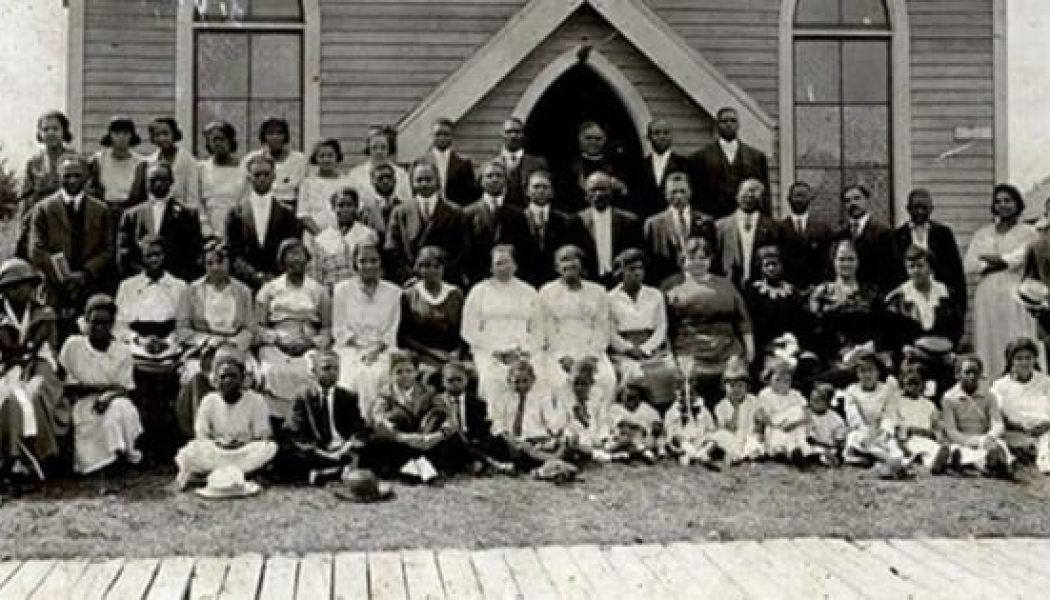salvation
10 Reasons Why It Is More Blessed to Give than to Receive
The most unbelieved beatitude in the Bible is: “It is more blessed to give than receive” (Acts 20:35). The giver happier than the getter? Surely some mistake? That goes against all our intuitions and instincts. So let me help you to believe it and act upon it by giving you ten reasons why it is more blessed to give than to receive. 1. Giving obeys God’s command The Old Testament has way more commands about financial giving – who, when, and how much – than the New Testament. Maybe the New Testament writers just assumed that as God had given far more to us in the New Testament – giving Himself to death – that our giving should follow fairly logically and easily. But, just in case we might miss the link, there are clear New Testament commands also (e.g. 1 Corinthians 1:2). As all of God’s com...
What Is Postmillennialism?
Postmillennialism is an end-times view that focuses on the progressive victory and expansive influence of Christianity. It believes that we are currently living in the “Millennium” and that, during this indefinitely long period of time, Christians are tasked to extend the Kingdom of God in the world through the preaching of the gospel and the saving work of the Holy Spirit in the hearts of individuals. Postmillennialists believe that, as more people are saved, the Millennium will become an increasing golden age of spiritual prosperity with uplifted social, economic, political and cultural life. The world will eventually enjoy a state of righteousness and peace hitherto unseen. Only after the completion of this period will Christ return. Proponents of this view include John Calvin, William ...
The Resurrection Changes Everything
How important is the resurrection to your faith? Not to the doctrinal center of your belief system, but to the day-to-day out-working of your salvation? If your mind draws a blank, you may be missing the power of the resurrection in your personal walk with God. Steve Mathewson, pastor of CrossLife Evangelical Free Church in Libertyville, Illinois is an adjunct professor in preaching at Trinity Evangelical Divinity School. He has written a helpful book called risen: 50 reasons why the resurrection changed everything (Baker Books) which unpacks the significance of Christ’s resurrection. Today, he joins me on the blog for a conversation about his book. Trevin Wax: In the foreword to your book, Craig Blomberg writes: Christian teaching often focuses more on the questi...
4 Reasons Why Christians Have Nothing to Fear
We do many things to avoid death, the pain of death, and the uncertainty about what awaits us after death. Some people refuse to plan their wills or attend funerals, for that forces them to think morbid thoughts. Others avoid new ventures that involve air travel even though you are more likely to be in a car accident than a plane crash. Still others of us shrink back from sharing our faith where it would mean persecution or possibly martyrdom. If we are going to be people who live Christ-centered, counter-cultural lives, we cannot let death bully us with concerns about death itself, the manner of our demise, and what lies just past the door to the afterlife. Instead, we must be fully assured that Christ’s work in the incarnation, on the Cross, and in the resurrection means for us that ther...
Learning to Be the Moral Minority from a Moral Minority
Of late, the evangelical world has found itself reeling from cultural setbacks it once took for granted. The re-election of President Obama, state passage of “gay marriage” initiatives, the uninviting of Louie Gigglio to the Inauguration, and even Super Bowl 2013 have signaled to some that Christians and Christianity have lost their welcome place in the public square. For the first time, some evangelical conservatives feel like an oppressed minority in the country. As I’ve watched the chatter mixed with laments and jeremiads, I couldn’t help but think of Jerry Falwell’s “moral majority,” founded in the late 70′s and defunct by the late 80′s. For nearly a decade, the Moral Majority exercised its political voice largely in southern states. It seems to me that the very notion of a “moral majo...
Why Rosa Parks (Still) Matters
As the nation marks the 100th anniversary of the birth of Rosa Parks, we should avoid the temptation to see her as merely a historical figure, a heroine of the past. It would be easy to do so. After all, no city in America segregates its public transportation system by skin color, not even Montgomery, the capital of the old Confederacy, where Mrs. Parks famously refused to give up her seat to accommodate Jim Crow. Even so, Rosa Parks’ example is about the future as much as the past. First of all, the memory of Rosa Parks ought to remind us that she didn’t live in what we refer to as “the civil rights era,” as though racial justice was achieved and can now be ignored. True, the awful state oppression against African-Americans, both north and south, was knocked down with legislative triumphs...
The Resignation of Pope Benedict XVI
With Pope Benedict XVI’s shocking resignation this week, evangelical Christians might be tempted to see this the way a college football fan might view the departure of his rival team’s head coach. But the global stakes are much, much higher. As Pope Benedict steps down, I think it’s important for us to recognize the legacy of the last two bishops of Rome that we ought to honor and conserve: an emphasis on human dignity. As a Baptist Christian, I disagree with Rome on many things, of course, and some of those things relate to the nature of the Petrine ministry, the relationship of the Bishop of Rome to the rest of the church, the merging of civil and ecclesial power, and so on. It might surprise previous generations of Protestants, though, that one of the primary emphases of the Vatican in ...
Apologetics and the Importance of Listening
Apologetics and the Importance of Listening: A Conversation with Mary Jo Sharp: Mary Jo Sharp is an assistant professor of apologetics at Houston Baptist University. She is the founder of Confident Christianity Apologetics Ministry, and an experienced speaker in apologetics. I was impressed with her study, Why Do You Believe That? A Faith Conversation, and so I invited her to contribute to the upcoming worldview edition of The Gospel Project. She is also author of Defending the Faith: Apologetics in Women’s Ministry. Today, I’m glad to welcome Mary Jo for a conversation about apologetics and the importance of listening. Trevin Wax: Tell us a little about your journey from atheism to Christianity. Mary Jo Sharp: As a teenager, I was not a Christian, nor a person who real...
The Martyrdom of St. Valentine
Who was St. Valentine? Saint Valentine, officially Saint Valentine of Rome, is a widely recognized 3rd-century Roman saint commemorated on February 14 and since the High Middle Ages is associated with a tradition of courtly love. All that is reliably known of the saint commemorated on February 14 is his name and that he was martyred and buried at a cemetery north of Rome on that day. It is uncertain whether Saint Valentine was one individual or a pseudonym for several. Connection to Today Today we exchange cards expressing love or appreciation for one another. According to tradition, on this day, February 14, 269, a young man named Valentine was executed in Rome for his faith. But what does our exchange of sentimental cards have to do with a th...
The Power of Desire
“…And there is nothing on earth that I desire besides you.” (v.25b) You and I are creatures of desire. There is nothing you ever choose, do, or say that is not the product of desire. Desire not only directs your choices, it shapes your dreams. Desire forms your moments of greatest joy and darkest grief. Desire makes you envious of one person while being glad you’re not another. Desire keeps you awake at night or puts you soundly to sleep. Desire makes you willing to get up in the morning or causes you to be frustrated at the end of the day. Desire makes you expectant and hopeful in one moment, and demanding and complaining in the next. Desire sometimes makes you susceptible to temptation and at other times is the thing that defends you against it. Desire can lift yo...
The Soul of a Leader
In my book “What They Didn’t Teach You In Seminary,” I wrote about something you may have never heard before: Ministry is spiritually hazardous to your soul. Actually, leadership of any kind has a built-in set of challenges. Here are some of the reasons why that are ministry specific, but are easily transferred over to other areas of leadership: First, it is because you are constantly doing “spiritual” things, and it is easy to confuse those things with actually being spiritual. For example, you are constantly in the Bible, studying it, in order to prepare a talk. It’s easy to confuse this with reading and studying the Bible devotionally for your own soul. You’re not. You are praying – in services, during meetings, at pot lucks – and it is easy to think you are leading a life of pers...
Who Is Satan? Bible Verses and Christian Teachings
“Americans don’t take Satan seriously. His evil and dark dealings with the culture and lives of people is subtle here. But in Brazil, his work is out in the open. We know he is real.” These are the words of a friend of mine who was born and raised in Sao Paulo, Brazil. She expressed concern for how “cavalier” we are about evil in the United States. The Bible has much to say about Satan and how he affects our lives and he certainly does need to be taken seriously. Here are seven teachings about Satan from the Bible. 1. Satan is real. Ezekiel 28:11-19 is a dual prophecy describing both the king of Tyre and Satan himself. He was the model of perfection, full of wisdom, and perfect in beauty. He was in Eden, the garden of God, with clothing adorned with every precious stone, all beautifu...





















